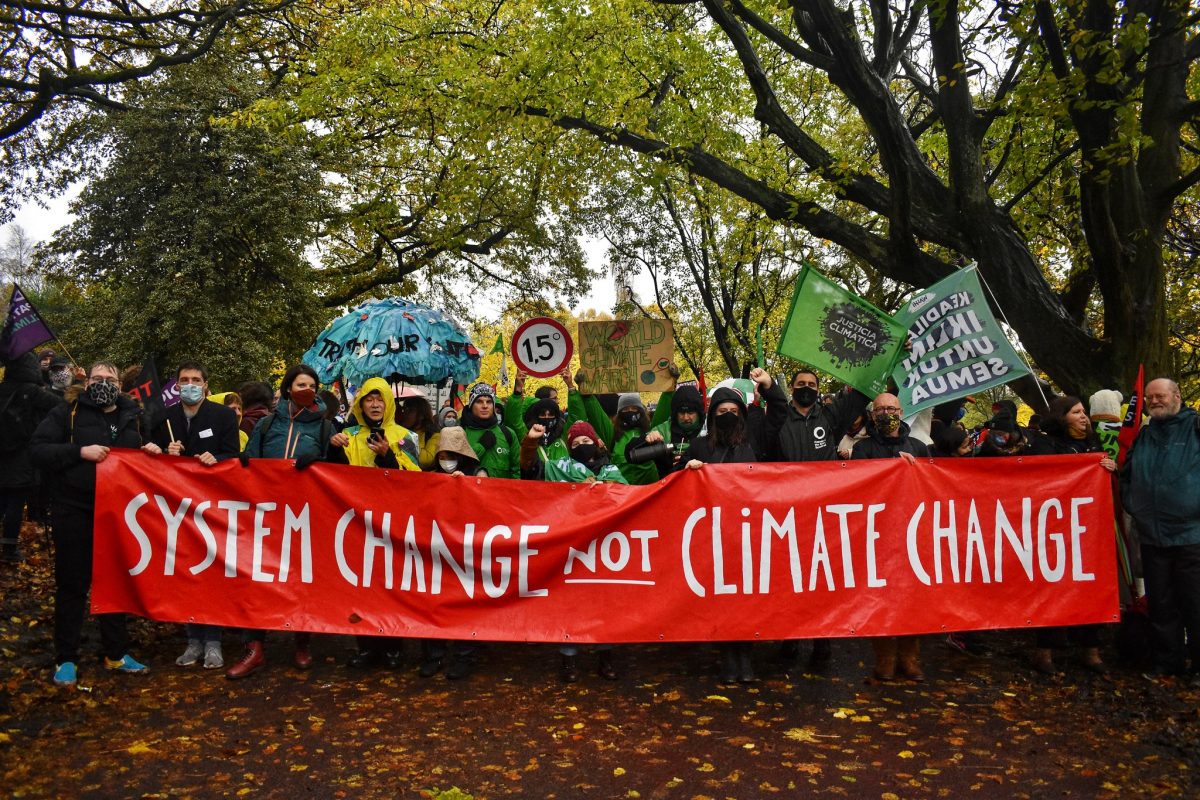
High risk, unsustainable investments do not make good business
RBS must stop gambling with tax-payer money and lead the way in ethical lending.
The Royal Bank of Scotland should stop investing in dirty projects and turn itself into a world-leading green bank, according to a campaigners and leading ethical investment experts, ahead of the bank’s AGM in Edinburgh tomorrow (Wednesday 28th April).
Julian Parrott, Partner with Ethical Futures, an Edinburgh-based ethical financial planning service, said:
“The role of management of a plc is to deliver ‘shareholder value’. Royal Bank of Scotland has spectacularly failed to do this; not only have they presided over a 90% fall in value of the past five years but they have completely ignored the long term social and environmental impacts of their lending decisions.
“The bailed-out banks, like RBS, have enormous potential to be help move us to a more environmentally and socially sustainable future by investing their money ethically. A bank largely owned (84%) by taxpayers of a country which is supposed to be committed to combating climate change should surely be focusing on investing in new sustainable industries.
“A new government coming in after the general election next month should use its power over the bailed-out banks to ensure that they stop investing in developments that are fuelling climate change and threatening human rights and instead invest in clean technology and green jobs.
“That’s where the future lies and that’s what makes the most business sense too.”
Pointing to independent research which argues that ‘business as usual’ at RBS exposes taxpayers to both environmental and financial risks, campaigners say this risk can be reduced if the bank withdraws from funding high-carbon projects such as mining and power stations, and instead invests in renewable energy and clean technologies.
The report, ‘Towards a Royal Bank of Sustainability: protecting taxpayers’ interests; cutting carbon risk’ report recommends that RBS should sign up to the Carbon Disclosure Project (CDP) enabling investors to assess the climate risks of its investments, as well as setting and monitoring targets for reducing emissions from its lending portfolio.
The report also advises that the Government must behave as an active owner and incorporate environmental, social and corporate governance issues into its ownership policies and practices.
Commenting on the RBS 2009 Sustainability Report published today (27 April), Platform Climate and Finance Campaigner Kevin Smith said:
“Environmental sustainability is relegated to one subsection of the one of the five parts of the RBS Sustainability Report, which shows that this is clearly way down on the bank’s priorities. RBS continues to try to have its cake and eat it by trumpeting its investments in renewable energy, while avoiding the issue of the massive amounts of money it is pumping into fossil fuel companies around the world.”
ENDS
For media enquiries please contact:
Per Fischer, Press Office, Friends of the Earth Scotland t: 0131 243 2719
Siobhan Reardon, Amnesty International t: 0131 313 7010 m: 07855 196422
Notes to editors
“Towards a Royal Bank of Sustainability: protecting taxpayers’ interests; cutting carbon risk”. The report was written by Nick Silver, an independent consulting actuary, using data supplied by Investor Watch and Platform and commisioned by Friends of the Earth Scotland, PLATFORM, People & Planet, Investor watch, Landman Economics and the World Development Movement. www.foe-scotland.org.uk/RBSreport2009
Julian Parrott is Chair of the Ethical Investment Association and a partner with ethicalfutures, Edinburgh based IFAs who specialise in ethical investment and financial planning advice. www.ethicalfutures.co.uk www.ethicalinvestment.org.uk
Dr Craig MacKenzie contributed a Foreword to the report. He is Director of the Centre for Business and Climate Change at the University of Edinburgh Business School, and Chair of the Advisory Group of the Carbon Accountability Programme.
The Carbon Accountability Programme aims to ensure confidence in our actions to reduce carbon. The CAP is hosted by Friends of the Earth Scotland and seed funded by Joseph Rowntree Charitable Trust. www.carbonconfidence.org
Carbon Disclosure Project, CDP, an independent not-for-profit organisation holding the largest database of primary corporate climate change information in the world. www.cdproject.net
Public shareholders will be protesting outside the RBS AGM, demanding an end to public money financing projects and companies that cost the earth and human lives. They will be joined by Eriel Tchekwie Deranger, First Nations spokesperson and activist from Canada, who will be sharing her first-hand experiences of the devastation caused by RBS’s investment policies.
Following the bank’s AGM there will be a public shareholders meeting, RBS Public Shareholder Meeting: Because it’s our bank now!’, organised by campaigners the World Development Movement, Friends of the Earth Scotland, Amnesty International Scotland, People & Planet, PLATFORM and Scottish Education and Action for Development. The events are also supported by the Indigenous Environmental Network (http://www.ienearth.org) and Rainforest Action Network (http://www.ran.org/tarsands)
Eriel Deranger, Canadian First Nation representative, and directors of all the NGOs campaigning against RBS’s dirty developments, will be meeting with RBS Group Chairman Sir Philip Hampton and other senior executives the day after the AGM to outline in more detail their proposal for how RBS could become the Royal Bank of Sustainability.
